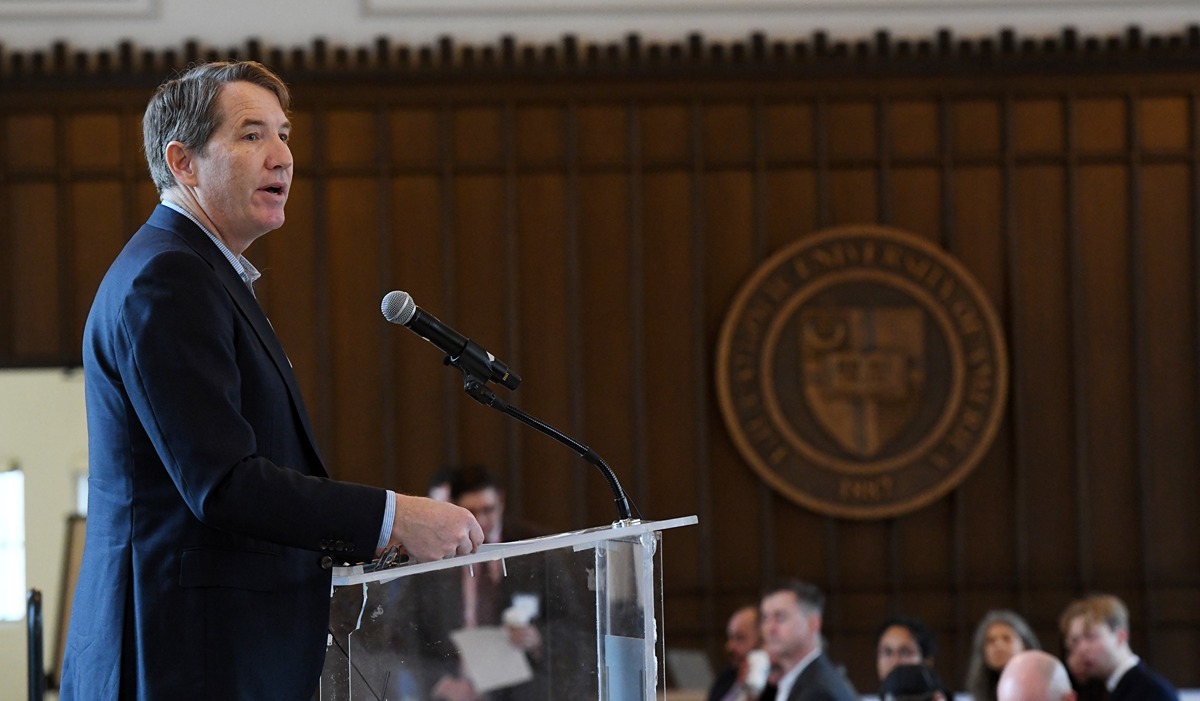

The Catholic University of America — as part of an ongoing collaboration with information technology market leader Leidos — held a summit on Jan. 31 inside Heritage Hall that brought innovators, policy leaders, and experts together to discuss how generative artificial intelligence (AI) is reshaping national security.
The one-day conference, titled “Generative AI and National Security,” explored the trajectory of a technology that poses unique challenges and opportunities for public, private, intelligence, and military stakeholders.
Leidos Senior Vice President for Technology Integration Ron Keesing gave opening remarks that set the tone for the conversations to follow.
“How can we responsibly harness the power of generative AI? This is the question that brings us all together today,” said Keesing. “I am excited to see speakers and audience members share ideas and lessons learned on how we can manage AI’s limitations, while still exploring this technology’s potential.”
The conference is the second in a series spearheaded by Assistant Professor of Politics Jonathan Askonas, who led a panel on the state of AI and another on its military applications. The first installment was 2022’s “Virtue in the Loop,” which explored ethical considerations for adopting AI.
The featured speaker for the "Generative AI and National Security" keynote discussion was Scale AI managing director Michael Kratsios, a former chief technology officer for the United States and former acting undersecretary of defense for research and engineering. The conversation focused on how policymakers can promote responsible AI uses in the public, private, intelligence, and defense sectors.
“There needs to be high-level political buy-in and the desire to get things done,” said Kratsios.
He advised that attempts to regulate AI must be constructed with the expectation that our adversaries won’t play by the same rules.
Kratsios said one of the biggest hurdles to developing best practices for national security is the number of stakeholders involved. For example, concerns about autonomous drones are under the jurisdiction of multiple government agencies, including the Air Force and the Federal Aviation Administration.
Other sessions throughout the day included prominent experts such as Air Force chief responsible ethics officer Joe Chapa, Stanford Internet Observatory research manager Renée DiResta, and executive leadership from several AI firms.